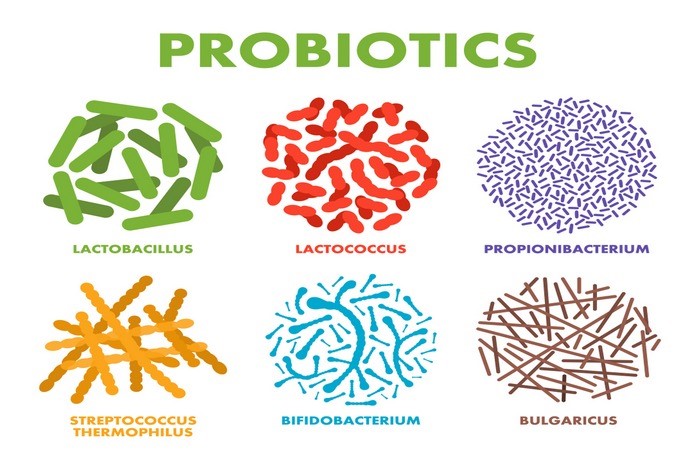Probiotics are live yeasts and bacteria that are considered beneficial in preventing various health conditions. These probiotics are usually consumed as yoghurts and supplements and are also named as “good bacteria.” Probiotics restore the average quantity of bacteria in the GIT when it has become disrupted due to gastrointestinal diseases or long-term use of antibiotics. However, this claim is supported by little solid evidence.
Probiotics are defined as “live microorganisms which, when taken in adequate amounts, provide a health benefit on the host.”
These probiotics should be alive when they are administered. The most well known probiotic bacteria are Bifidobacteria and Lactobacillus, which have been researched thoroughly. Most of their strains have been studied in detail for their beneficial effects in various conditions such as inflammatory bowel disease, antibiotic-associated diarrhoea, and irritable bowel syndrome.
The term probiotic is acquired from the Latin grammar “pro,” which means “for” while “biotic” is a Greek word meaning “life”. The concept that the harmful microbes can be replaced with beneficial ones and gut flora can be modified were first introduced in 1907. According to this concept, proteolytic and putrefactive bacteria generate toxins in the large intestine that leads to “intestinal auto-intoxication,” which contributes to the early ageing.
Probiotics have been studied thoroughly for the treatment and prevention of a variety of gastrointestinal abnormalities, including ulcerative colitis, pouchitis (inflammation of a surgically created rectum) and Crohn disease. Usually, these studies indicate that people who are affected or who are at risk of these conditions, probiotics have little or no clear benefit. The most-convincing proof about their effectiveness comes from research of diarrheal diseases, especially in children. For example, S. boulardii has been used for reduction in the frequency of severe diarrheal episodes in children. Likewise, certain strains of L. rhamnosus GG may show modest effects in the reduction of infectious diarrheal frequency. S. boulardii and L. rhamnosus GG may be useful in the prevention of antibiotic-associated diarrhoea in adults and children.

Researchers are trying to figure out the exact working mechanism of probiotics. Some of the ways probiotics may keep you healthy:
If you lose “good” bacteria in your body, especially when you take antibiotics, probiotics can help in replacing them.
Although probiotics are generally considered to be safe, they may lead to severe fungemia (fungal infection of the blood) and bacteremia (bacterial infection of the blood) in immunosuppressed patients. Probiotic-associated bacteremia has been diagnosed in patients with severe ulcerative colitis. Probiotics have proven effective In preterm infants as it reduces the likelihood of necrotizing enterocolitis; however, cases of probiotic-associated sepsis have been reported. In addition, although probiotics (microorganisms) are consolidated into commercial products that are sold and marketed as health-promoting products, direct evidence is lacking for the efficacy of many such over-the-counter probiotics to promote health in otherwise fit individuals.
They can help balance your “bad” and “good” bacteria to keep the body working the way it should.
